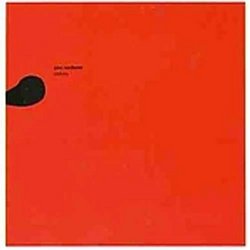| All Artists: Arne Nordheim Title: Dodeka Members Wishing: 0 Total Copies: 0 Label: Rune Grammofon Release Date: 1/1/2004 Album Type: Import Genres: Dance & Electronic, Pop Styles: Electronica, Dance Pop Number of Discs: 1 SwapaCD Credits: 1 UPCs: 7033662020300, 0602498075456, 2605000030507, 602498075456, 7071155280268, 766483379445 |
Search - Arne Nordheim :: Dodeka
 | Arne Nordheim Dodeka Genres: Dance & Electronic, Pop
|
Larger Image |
CD Details |
CD ReviewsBleep Bleep Bleep (4.5/5) M. Starr | Kansas City | 05/26/2004 (4 out of 5 stars) "To say Arne Nordheim has seen it all is such an understatement. Nordheim was born in 1931 and has lived through the times of World War II. At a younger age, he headed his own music movement by influencing his Norwegian community to move toward a more modern way of appreciating music. His newly released album on Rune Grammofon, titled Dodeka (meaning twelve), shows a remarkable test of time. Eleven of the twelve compositions were recorded in Warsaw nearly 35 years ago and have been stored in Nordheim's archives ever since. I'm astonished at how far ahead of its time Dodeka is because it sounds very similar to what so many modern electronic artists are doing today. It's only befitting that Dodeka be released at a time like this, which I'm sure is exactly what went through Rune Kristoffersen's head when he dug up these electronic snippets of opposing thoughts. It has been assembled with twelve tracks of sonorous drones and mind expanding tones that seem to barely cover the surface of a plain white sheet of canvas. The last piece, "Summa," is a more recent composition and consists of a culmination of snippets from tracks one through twelve; thereby giving it a much fuller sound than its predecessors. It may also be safe to say that the first eleven snippets are just components (or again, thoughts) of what Nordheim must have been trying to accomplish overall. Because of the spaciousness of Dodeka's songs, you get the illusion that this is one long and flowing arrangement. I'd say many of today's electronic artists owe quite a bit to Arne Nordheim and his vision of a more justifiable future for music. With his influence in just his own small worlds of Poland and Norway, it may be easy to say that his ideas and hard work affected an even broader range of electronic musicians across the world today. The fact that Dodeka came from a different time and place makes it a highly respectable piece of modern music history, and one of the best releases thus far for abstract compositions."
|

 Track Listings (12) - Disc #1
Track Listings (12) - Disc #1